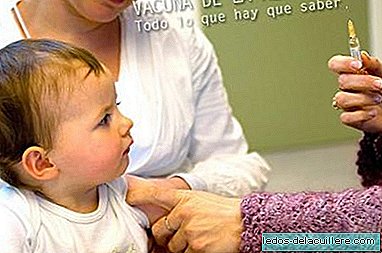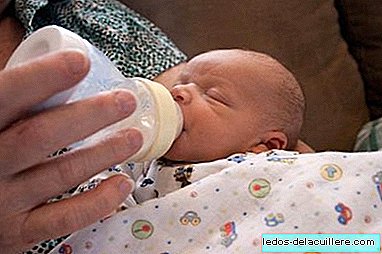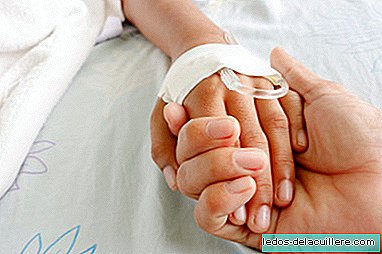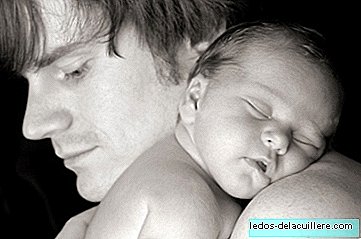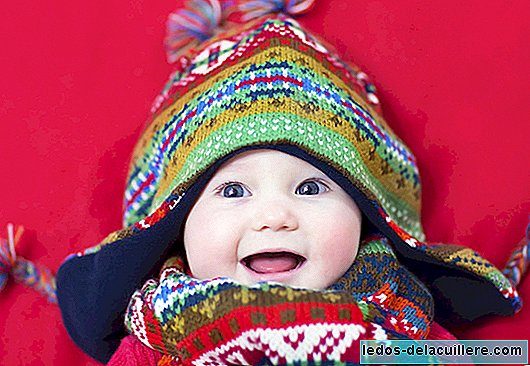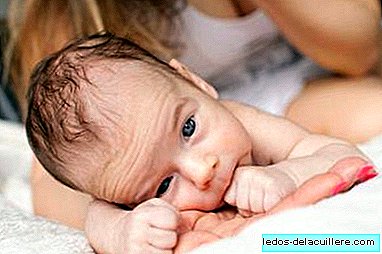
The baby's brain is fascinating. Understanding how this organ works in the first years of life, how it grows, evolves and molds, helps us to better understand our children and raise them according to their emotional needs.
A recent research published in the magazine JAMA Neurology in which the brain of 87 babies has been scanned from birth to three months has revealed that when the baby's brain grows faster it is in the hours and days after delivery. One more reason not to separate from the baby for a second after delivery and to create a solid emotional bond with the newborn.
How much the baby's brain grows
The study was conducted by researchers from the University of California, the San Diego School of Medicine and the University of Hawaii using advanced scanning techniques. It is the first time it is published accurate information about how baby brains grow, data that is not based on post-mortem studies or less effective scanning methods.
They have found that the human brain grows faster after birth and manages to reach half of his adult size at three months of life.
The brain of the newborn grows an average of 1% per day and after three months grows 0.4% daily.
They also observed that boys 'brains grow faster than girls' brains and that the areas of the brain involved in movement development grow faster than those linked to memory.
The fastest growing area of the brain
He cerebellum, a region of the brain whose main function is to integrate the sensory pathways and motor pathways, is the fastest growing because it doubles in size in the first 90 days of the baby's life.
The brain begins to function at all rates so that the baby adapts to its new environment, starting up the mechanisms that involve the senses and movement.
Therefore, in the first months it is essential stimulate baby's senses, for example through the caresses, speaking to him at a distance that he can see you and with a soft voice. The massages, on the other hand, will help the baby begin to take notice of his own body and be better prepared for the grip phase, crawling and later to start walking.
The area of the brain that grows more slowly
The region that most slowly develops is the hypothalamus, the most important for the coordination of essential behaviors, linked to the maintenance of the species, in addition to regulating the release of hormones from the pituitary gland, maintaining body temperature and organizing behaviors such as feeding, fluid intake, mating and aggression.
This region also plays a central role in how memories are organized and created. In relation to this, we recently commented on another interesting study that argued why we do not remember when we were babies. The scientific explanation for the absence of memory in the first years of life is that the size of a young child's brain is still limited to the process of generating new cells and storing memories at the same time, so it prioritizes, wisely, what First.
The brain of premature babies
When evaluating premature babies, scientists noticed that their brains were a 4% smaller than those children born after the normal gestation period.
Despite growing at a faster rate than babies born in the normal period, their brains were a 2% smaller after 90 days.
The importance of accurately measuring the baby's brain

These studies help us to understand many things related to babies, but their purpose is to apply this knowledge to new treatments or techniques, in this case to be able to measure more accurately the brains of babies.
So far, the way to control brain growth is by measuring the baby's skull with a tape measure. If the cranial circumference does not correspond to the child's age, it could suggest some developmental disorder.
But because babies' heads vary in size, measurements with tape measures or centimeters are not always accurate and a more effective method is needed to detect if brain growth is normal or not. This way you could identify early signs of brain development diseases, including autism.
The attachment to nourish the baby's brain
Know that The baby's brain grows rapidly in the first hours and days of life and that grows so spectacularly in the first three months of life, making a great effort to adapt to its new environment, makes us justify even more attachment practices.
Attachment will help nourish your brain in full growth and create a strong emotional bond starting immediately after childbirth through non-separation between mother and baby (not a single minute) and early skin-to-skin contact between them.




